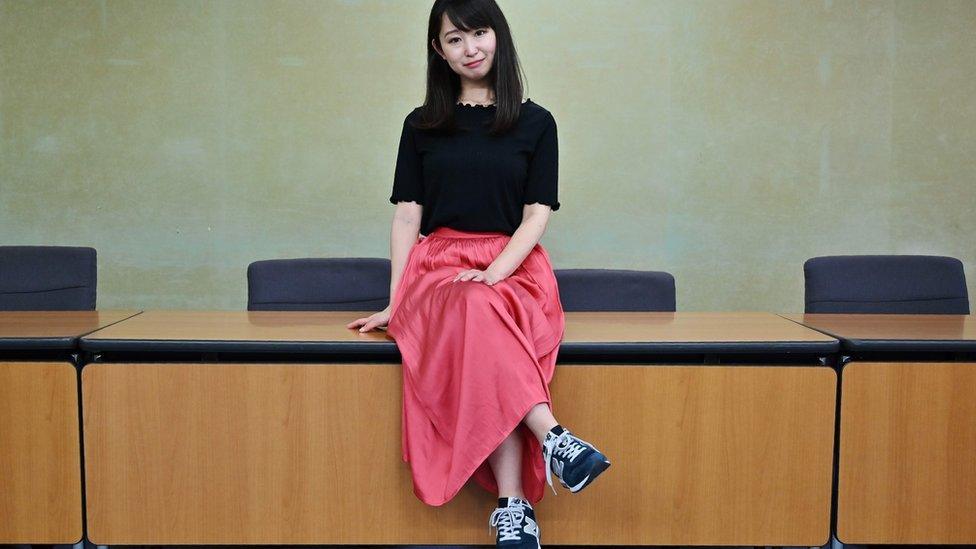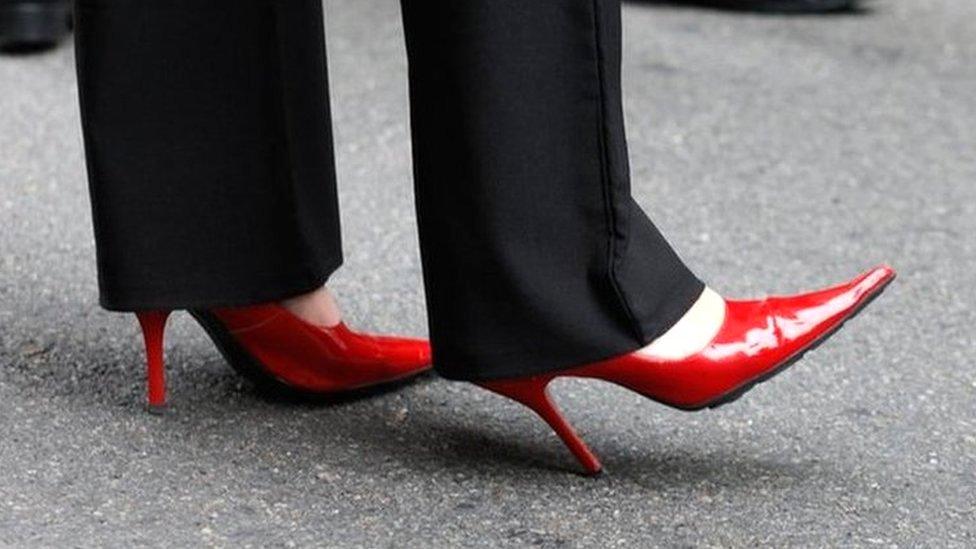Thousands back Japan high heels campaign
- Published

Yumi Ishikawa says she was made to wear high heels while working at a funeral parlour
Around 19,000 people have signed a petition calling for Japan to end dress codes that require women to wear high heels in the workplace.
The petition was started by Yumi Ishikawa who says she was made to wear high heels while working at a funeral parlour.
Her tweets on the issue went viral with more than 30,000 shares.
In 2015, a London receptionist was sent home from work without pay after she refused to wear high heels.
The campaign is referred to in Japan as #KuToo. It plays on the Japanese words for shoes "kutsu" and pain "kutsuu", external and also references the #MeToo movement, according to Kyodo News.
Campaigners say that wearing high heels is seen as obligatory when applying for jobs.
Ms Ishikawa, also an actress, said: "I hope this campaign will change the social norm so that it won't be considered to be bad manners when women wear flat shoes like men."
She added that she had met a ministry official who was "sympathetic" towards the petition.
It's not the first time that a campaign has been launched to change dress codes at work for women.
Nicola Thorp set up a petition calling for UK dress code laws to be changed after she was asked to wear high heels at finance company PwC.
She was hired as a temporary member of staff and refused to comply with the dress code. Following coverage in the media, outsourcing firm Portico announced that female colleagues could "wear plain flat shoes" with immediate effect.
In 2017, a Canadian province scrapped the dress code which requires female employees to wear high heels.
The government of British Columbia said that high heel wearers face a risk of physical injury from slipping or falling as well as possible damage to the feet, legs and back.
- Published12 May 2016

- Published11 May 2016
